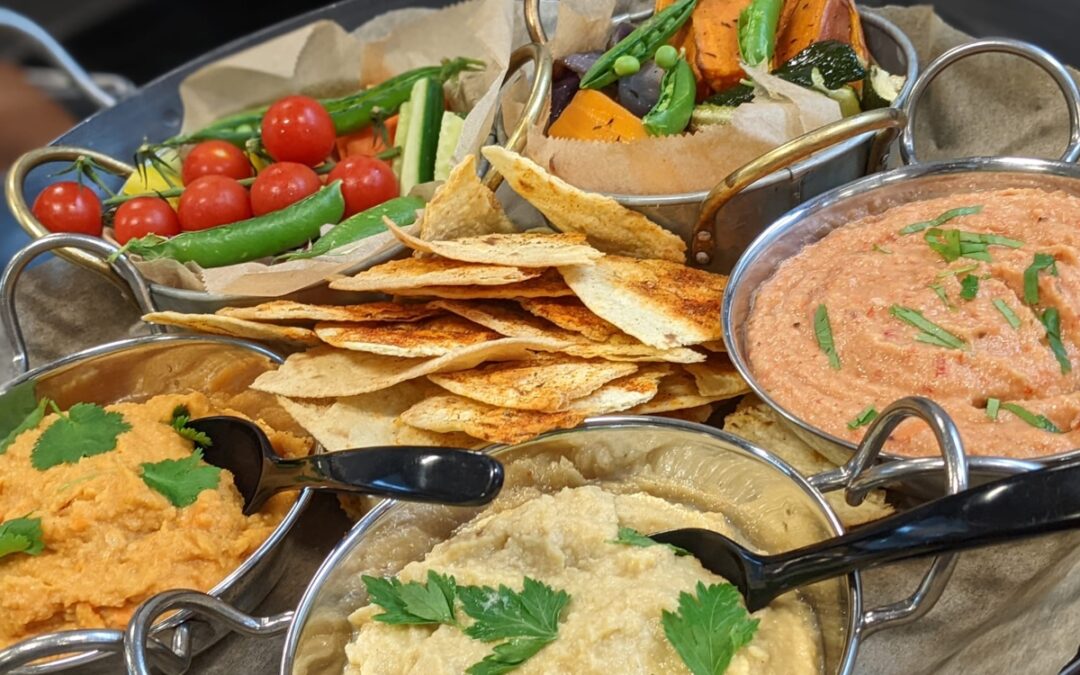Embracing multicultural cuisines not only celebrates diversity but also fosters unity among students. After all, nothing is more unifying than the shared enjoyment of delicious food.
Reasons why schools should celebrate cultural diversity in menus
Whether it is hummus, curries, pitta bread, falafel, bagels, or teriyaki noodles, taking inspiration from various cultural cuisines can improve the nutrient value of food and flavour. Seeing diverse food on the menu reassures parents and children that schools and caterers are mindful of diversity in the student population. It creates a welcoming and accepting dining environment for all children.
Fostering inclusivity and tolerance
Culturally diverse food creates inclusivity that fosters a sense of belonging for children of different ethnicities. It increases cultural awareness among students, challenging prejudices and stereotypes. Food diversity encourages children to explore and embrace cultural differences rather than fear them. Teaching children about the uniqueness of these foods helps them develop a new appreciation for them and their cultural roots. It can instil respect and equal consideration for those different from them from a young age.
Enhancing cultural awareness among students
While students of different ethnicities study together in one classroom, they may not be aware of or interested in each other’s cultural backgrounds. However, the dining hall is a place to celebrate this diversity. Food can lead to cultural competency. It helps them become aware of different culinary traditions.
Children learn to identify various foods, traditional ingredients and their significance to that particular culture. Increased cultural awareness leads to a better understanding of and appreciation for diversity. Pupils will also learn to respect different culinary traditions and their peers’ food choices. It encourages culinary exploration without preconceived notions.
Building a sense of community
The shared culinary experiences instil a sense of familiarity among students. Recognising the diversity in one’s school offers children a better picture of their community and the larger society. They positively identify it as multi-ethnic. Children of different ethnicities will feel at home in the school community. It breaks cultural barriers to form meaningful understandings that shape their attitudes.
Creating a welcoming environment
Celebrating cultural diversity with culinary diversity helps children feel welcomed into the school system. Offering vegan menu options or halal or kosher food includes children in the school meal take-up. It promotes a healthy environment for all children to eat healthy, high-quality school lunches, with no child left behind.
How to implement multicultural menus in school meals
High-quality food and nutrition for schoolchildren is an investment. You cannot achieve high quality without a culturally diverse menu that reflects the needs and preferences of all children. It requires the combined efforts of parents, school staff, administration, caterers and local authorities.
Stakeholder participation
Stakeholders must engage, communicate and advocate with no reservations. School officials need to have comprehensive data on the student population, allergies, and understand the importance of alternative diets. There should be easy communication between the school and parents to learn about every child’s special dietary needs and how to meet those needs. Schools should then provide this information to the caterers.
It is vital that school caterers have a digital platform to share the menus with parents and school staff. Parents, school staff, administrators and children should be able to give feedback to caterers, who will then use it to refine their menus. There should be a continuous effort to improve and diversify menus.
Training staff
Both the school and catering staff should be able to identify which ingredients are acceptable for each alternative diet. From sourcing ingredients to preparing them in the kitchen to serving at the cafeteria, all those actively participating in the process must have training. Catering staff, chefs and nutritionists working to assemble meals must have valid training to curate and integrate culturally diverse menus. School staff must monitor and oversee serving and distribution to evaluate quality and accuracy.
Cultural events and celebrations
One of the most effective ways to promote diversity in schools is to celebrate cultural holidays and festivals like Easter, Eid, Diwali, Holi, multinational and multifaith New Year festivals, All Saints Day, All Hallows’ Eve, Passover and national days. Schools can arrange for caterers to give cooking demos to encourage student engagement. Teachers and students can offer educational and historical insight into each holiday.
Schools and caterers can also incorporate international food days like Shrove Tuesday, pancake Day, International Hummus Day, International Falafel Day, World Vegetarian Day, World Pasta Day and World Food Day. Nearly 8 in 10 respondents of a study by ParentPay said that more themed meals would encourage them to choose school meals.
Partnering with a flexible catering company
Not every school is alike. Different schools have varying levels of diversity. Therefore, caterers must have the flexibility to deliver bespoke solutions. They should be able to offer more options for special dietary types, pre-ordering, more information on ingredients and nutrition, easier parent booking and a reliable allergen management system. Prioritising those favouring sustainability, higher nutrition, innovative and adaptable menus will allow you to achieve your goals satisfactorily.
Celebrating diversity with AiP
Delicious food is a conversation starter. It helps children appreciate food and learn more about the culture, and allergies of their fellow students. It can dispel myths, correct misunderstandings, highlight similarities and enhance tolerance. The dining hall can be where an education into diversity begins and flourishes. We deliver on-site and off-site catering solutions tailored to your school and its unique needs. We create balanced, nourishing and flavour-packed meals that exceed government food standards. Our digital solutions and sustainability standards ensure efficiency and ecological responsibility.
